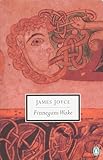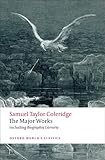-
- William H. Gass loved words. “A word is a wanderer,” he wrote in “Carrots, Noses, Snow, Rose, Roses.” “Except in the most general syntactical sense, it has no home.”
- Gass longed to make worthy homes for words. He often chose lists.
- Lists were his secular litanies. Lists allowed Gass, who always longed to be a poet, to ladle his words into natural meter.
- We are lucky if we find a sentence or paragraph to hold onto—as a reader, as a writer. We write them on index cards and impale them into cork board. We let them collect dust under a lamp. We are strangely blessed if we can find a writer who can carry us even further—through a book, through a life.
- I return to Gass like a pilgrimage. His final offering, The William H. Gass Reader, is a gift. Nearly a thousand pages of his essays about writers and artists, his theories about fiction, and selections from his novellas and novels.
- When I say Gass loved words, I mean he genuinely, audaciously, absolutely loved words. Language seemed an infinite gift that he grasped. A typographic deity.
- “I am an octogenarian now and should know better, but I recently let a sentence reach print so embarrassingly bad its metaphors seemed fright into scattered flight like quail.” He was not afraid to fail.
- “Skepticism was my rod, my staff, my exercise.” Gass was pessimistic. He was clothed in doubt.
- Yet that skepticism, as it does with the best critics, gave foundation and significance to his celebrations. You cannot love words without also loving writers. Gass loved writers.
- He loved Gertrude Stein. Her play, her power. “There are texts,” he writes in “Fifty Literary Pillars,” “and there are times, and sometimes both are right and ring together like Easter changes.” He thought Stein “did more with sentences, and understood them better, than any writer ever has. Not all her manipulations are successful, but even at their worst, most boring, most mechanical, they’re wonderfully informative. And constantly she thought of them as things in space, as long and wiggling and physical as worms.”
- We need critics who can admire. We need critics who can feel awe.
 Gass loved: Plato (“His dialogues are among the world’s most magical texts”). Virginia Woolf (Her diary “alters your attitude toward life”). James Joyce (“Finnegans Wake is the high-water mark of modernism, and not to have been fundamentally influenced by it as a writer is not to have lived in your time”). Samuel Beckett (“Beckett wishes to save our souls by purging us—impossibly—of matter”). Katherine Anne Porter (“From her first tale to her last, she was in complete command of her manner—a prose straightforward and shining as a prairie road, yet gently undulating, too”).
Gass loved: Plato (“His dialogues are among the world’s most magical texts”). Virginia Woolf (Her diary “alters your attitude toward life”). James Joyce (“Finnegans Wake is the high-water mark of modernism, and not to have been fundamentally influenced by it as a writer is not to have lived in your time”). Samuel Beckett (“Beckett wishes to save our souls by purging us—impossibly—of matter”). Katherine Anne Porter (“From her first tale to her last, she was in complete command of her manner—a prose straightforward and shining as a prairie road, yet gently undulating, too”).- Gass makes us want to read more, and to read better. He believed reading was an athletic act.
- He was not an athlete. But as a boy, he was a member of a speed reading team, and in “On Reading to Oneself,” in his typical self-deprecating form, he writes of how he learned to read as an act of love. He writes of how the “speeding reader drops diagonally down across the page, on a slant like a skier; cuts across the text the way a butcher prefers to slice sausage, so that a small round can be made to yield a misleadingly larger, oval piece.”
- His vision of the world was always slightly bent. He turned us toward his curves.
- He thought we were a mess. “Evil,” he wrote, “is as man-made as the motorcar.” He didn’t have much faith in us—our track record has not been particularly splendid—and concluded, “we shall probably be eaten by our own greed, and live on only in our ruins, middens, and the fossil record.”
- He knew what we are capable of, and it scared him.
- In an essay on Ezra Pound, Gass wrote of how Pound, in his later years, apologized for his anti-Semitism, calling it a “mistake” and some “suburban prejudice.” Gass’s rebuke is powerful: “The tone of that repentance is all wrong, suggesting that Pound had made some error in arithmetic on his tax forms which turned out to have unpleasant consequences. Anti-Semitism is not a ‘mistake’ or even a flaw, as if it left the rest of its victim okay and in good working order. As with racism, a little does more than go a long way; it goes all the way.”
- Peel aside his play and Gass, truly, was one to trust.
- What can a Catholic learn from an agnostic Protestant? More than I could ever imagine when I discovered Gass as an undergraduate—I devoured (to use his word) “The Pedersen Kid,” which is rightfully included in full within this Reader. I would never be the same. We both have an affinity for the word soul, and let me not parse our differing theologies: I appreciate the contours of his unbelief, for they live within a state of wonder.
- What a wonder it is to make a world of words.
- “Words are with us everywhere. In our erotic secrecies, in our sleep. We’re often no more aware of them than our own spit, although we use them oftener than legs.” Words “lift our spirits—these poor weak words. They guide and they coerce. They settle fights, initiate disputes, compound errors, elicit truth. How long have we known it? They gather dust, too, and spoil in jokes which draw our laughter like the flies.”
 While a graduate student at Cornell, where he studied philosophy, Gass took a course with the legendary M. H. Abrams, a seminar course on Samuel Taylor Coleridge. The students read not only the Biographia Literaria—but also “every book it quotes from, mentions, alludes to.”
While a graduate student at Cornell, where he studied philosophy, Gass took a course with the legendary M. H. Abrams, a seminar course on Samuel Taylor Coleridge. The students read not only the Biographia Literaria—but also “every book it quotes from, mentions, alludes to.”- Gass said the method “taught me how to read, how to reread, even how to overread.” He learned “never to rely on secondary sources, but to trust only primary ones—a teaching that leads directly to this ideal: write so as to become primary.”
- He left us with this book.
The post To Make a World of Words: ‘The William H. Gass Reader’ appeared first on The Millions.
from The Millions https://ift.tt/2QBXaR5
Comments
Post a Comment